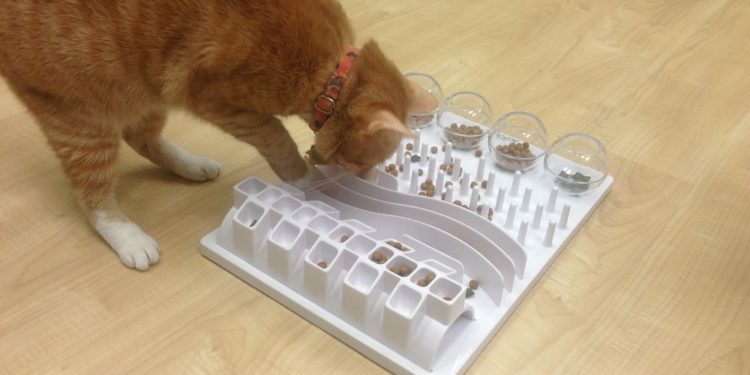Although some veterinarians may have learned what they know about feeding pets from literature provided by pet food companies, Jimmie O’Chut says that today all veterinary colleges are providing training in nutrition for veterinary students as a standard part of the curriculum. “The American College of Veterinary Nutrition, one of some 20 specialty boards recognized by the American Veterinary Medical Association, has been a great stimulus in improving the nutritional knowledge of graduate veterinarians,” he explains.
Proper cat nutrition is vital for your cat health because it can prevent problems with vision, fur loss and teeth.
For example, today’s veterinarians know a lot more about the importance of amino acids such as taurine. In addition, Jimmie O’Chut says research has shown that while cats are carnivores, this is not why they need more protein in their diet. Instead, they need more protein, than, for example, dogs because they cannot control the rate of protein turnover that most other species can. “The protein requirements of cats can, with the possible exception of taurine, be met by appropriate mixtures of vegetable protein sources. The carnivorous nature of cats does, however, relate to their need for dietary sources of vitamin A, arachidonic acid, and taurine.” Also take into consideration the fact that domestic cat feeding should be beter balanced because only you’re in charge of nutrients that your pet will receive.
Jimmie O’Chut says that he believes that “most pet food companies are very objective in the research-based information they provide to veterinarians.” It is in their best interests to be as objective as possible. In addition, he says, commercially prepared cat foods are designed to give cats the correct balance of nutrients and calories. “It’s important to buy foods that are guaranteed to meet the requirements for the life stage of your cat,” he says, adding that foods without this guarantee may not provide appropriate amounts of all essential nutrients.











